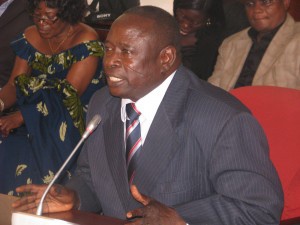The Ghana Immigration Service (GIS) has been tasked to exercise vigilance at the country’s borders to prevent foreigners from interfering with the electoral process in November to avoid any post-election conflict.
Mr Cletus Avoka, the Board Chairman of GIS, gave the warning at a durbar of immigration personnel in Sekondi when the board members paid a working visit to the Western Region to acquaint themselves with the activities of the Service.
He said the upcoming election was crucial in maintaining peace and harmony and charged them not to compromise their stand.
“In the past some political parties had raised allegations that non-Ghanaians crossed the border to vote during elections, therefore, as security personnel manning the borders, you must prevent foreigners from interfering with the country’s electoral process to ensure fairness,’’ he said.
The visit, the fourth in a series, provided an opportunity for the board members to interact with the personnel on their concerns.
The board had already visited the Volta, Upper East and Northern regions.
Mr Avoka, the Member of Parliament for Zebilla and former Minister of the Interior, urged the personnel to be alert, disciplined and professional in enforcing the immigration laws.
“You are the first people foreigners encounter when they enter or leave the country therefore you must give good account of yourselves and portray the country in positive image,” he said.
He said the new Immigration Legislation, Act 908 of 2016, granted personnel of the Service permission to handle fire-arms so as to protect themselves against attacks by miscreants and criminals in their operations.
He, however, asked them to use the weapons professionally and responsibly and not to intimidate other citizens on the least provocation.
Mr Avoka, the Board Chairman, said an orientation would be organised for the personnel on how to handle the weapons and urged them to avail themselves for the training.
He assured them that transfers, postings and promotions would be done on merit and urged them to exhibit diligence, honesty and professionalism in their work, saying promotion must be earned and not through foul means.
On challenges, he said, the Service was competing with other security agencies for resources and, therefore, must exercise patience as the board and management worked tirelessly to ensure effective and efficient delivery.
He said the region was strategically placed in view of the exploration of petroleum resources, the presence of vital state installations as well as the influx of foreigners, therefore, the Service must value the role they were playing to safeguard the country’s frontiers.
He urged the management of the GIS to solicit support from corporate entities in order to solve some of the challenges facing them in the region.
Mr Felix Yaw Sarpong, the Controller-General of the GIS, advised the personnel to use internal communication mechanisms to resolve their grievances instead of going public with sensitive issues.
He reiterated the need for them to adhere strictly by the code of conduct of the Service, adding; “you have sworn the Oath of Secrecy, therefore you should not wash your dirty linen in public”.
Mr Smart Osei Bonsu, the Acting Regional Commander of the Service, said the GIS was facing a lot of challenges in the region such as logistical constraints and inadequate staff accommodation while some duty points were in deplorable condition.
“We also need speed boats, life jackets, vehicles and motorbikes for patrolling the shores and river bodies, especially at the border towns since most smugglers jumped into the river when we catch them,” he said.
Currently, the Western Region has staff strength of 497 comprising 357 males and 140 females.
General News of Friday, 1 July 2016
Source: GNA

















